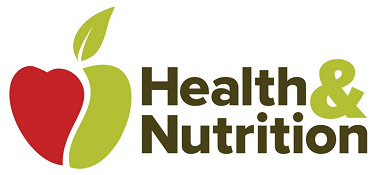Your habits before, during and after your workouts can be decisive for your fitness goals. Here are some tips to help you maximize your performance.
While exercise alone can do wonders for maintaining your health, promoting lasting health requires more than the occasional intense run or a quick, well-done workout. You should adopt healthy habits before, during and after training.
In this article, we review the rules to follow before, during and after training in order to enjoy long-lasting good health.
Before training
Hydration Management: Drinking plenty of water or electrolyte drinks to boost your hydration levels before long workouts can dramatically improve your performance. This phenomenon is known as “preloading” and has been studied extensively in athletes.
Optimizing your hydration level maximizes your blood volume, improves cardiovascular function and your muscles’ ability to expel heat.
Keep your energy level stable: Most experts recommend eating a small meal of high-quality protein, fats, and complex carbohydrates to keep your blood sugar levels stable during training.
Set time limits and goals: Your pre-workout warm-ups are a great opportunity to set time limits and goals for yourself. Use science-based information when planning your goals, so you have the right tools and guidance to achieve them.
Mobilize your body: A good warm-up should include dynamic stretching, mobilization exercises and light cardio exercises. You can do lunges, heel-butts, kicks, and arm circles as well as mobilization exercises like hip openers to prepare your muscles and circulatory system.
Avoid injury as much as possible: One of the most effective ways to avoid injury is to know your body and past injuries, take time to warm up properly, and rest between workouts.
Listen to your body : While some pain during training is normal, extreme pain is your body’s way of telling you that something is wrong. If you feel excruciating pain, you could seriously injure yourself.
Make sure you have good technique: by optimizing the length of your strides, the movement of your arms and the position of your head during training, you reduce the risk of injury and reap valuable benefits.
The right shoes: Good quality shoes can reduce the risk of injury and improve your performance. Check that the midsoles of your shoes are not damaged; if they’re worn out, it’s time to invest in new shoes.
Vary the pleasures: regularly change sports discipline. For example, you can swim on Monday, run on Tuesday, weight training on Wednesday, and so on.
This allows you to choose from a wide range of activities and work your whole body while avoiding overuse injuries.
Know when to slow down: Prolonged muscle soreness, fatigue, decreased performance and weakened immune system are all signs that you need to reduce your training pace. Give yourself a break when you’ve reached your goals.
Post workout
Cool-down: after intense sessions, plan a cool-down phase by consciously reducing your pace in order to initiate recovery.
Drink enough: depending on the duration and intensity of your training, as well as the temperature, it is recommended to drink between 4 and 8 dl. “Refueling” is important for health, recovery and future performance. Consuming isotonic energy drinks is a great way to hydrate and rehydrate.
Take off your wet clothes and put on dry clothes: depending on the intensity of your training, you may be drenched in sweat. By putting on cool clothes, you will prevent the development of acne, yeast infections and other unwanted skin conditions.
Promote muscle recovery: You can apply heating pads or ice to muscle contractures to reduce inflammation and promote healing, use a Blackroll, or get a massage. A protein shake or snack with 2 parts protein to 1 part carbs will also speed up muscle recovery.
Give your body the right nutrition: Proper post-workout nutrition is important for replenishing glycogen stores and supporting muscle recovery. Eating the right amounts of protein and carbohydrates can reduce muscle protein breakdown, increase muscle growth, and improve recovery.
Don’t make the mistake of opting for foods that are high in sugar and low in nutritional value. Experts recommend eating a meal containing high-quality carbs, protein, and healthy fats within 45 minutes of working out.
Get the most out of your workouts
You should focus on optimizing your program before, during and after your workouts to get the most benefit from them.
Eat right, stay hydrated, recover long enough, and you’ll be well on your way to achieving your fitness goals.



